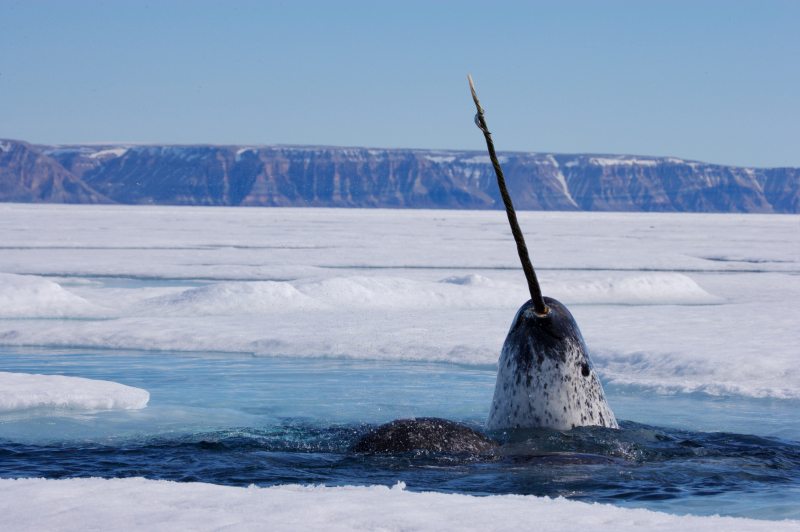A former member of the Grande Prairie RCMP has been sentenced to just over five years in prison for smuggling narwhal tusks into the U.S. Gregory R. Logan pled guilty to 10 money laundering offences in September 2016, after having been indicted in the District of Maine in November 2012 and charged with conspiracy, smuggling, and money laundering.
The Department of Justice says Logan was part of a smuggling scheme that moved more than 250 narwhal tusks into the United States between 2000 and 2010. As it’s illegal to import narwhal parts for commercial purposes, he hid them in false compartments in his vehicle and trailer to cross the border.
“Unlawful wildlife trade like this undermines efforts by federal, state, and foreign governments to protect and restore populations of species like the narwhal, a majestic creature of the sea with long and spiraled protruding ivory tusks,” says Acting Assistant Attorney General Jeffrey H. Wood of the Environment and Natural Resources Division in a release.
Logan agrees the market value of the tusks he transported is between $1.5 and $3 million. He used a shipping store in Maine to send them to customers, and they would pay him using cheques sent to a post office box or wiring money. It’s reported he was paid nearly $700,000, giving him a profit of $385,000.
“Logan knew that his customers would re-sell the tusks for a profit,” the Department of Justice adds, “and in an attempt to increase that re-sale price, Logan would occasionally provide fraudulent documentation claiming that the tusks had originally belonged to a private collector in Maine who had acquired them legally.”
According to the Canadian Wildlife magazine, Logan grew up in Saint John, New Brunswick, but worked as a mountie in Grande Prairie from 1985 until 2003. When the investigation into him began, he was living in the Swan City, but was operating his business out of a second home in New Brunswick.
He was extradited to the U.S. from Canada in March 2016. He and his wife Nina had already served four months of house arrest and paid a $385,000 fine for violating the Wild Animal and Plant Protection and Regulation of International and Interprovincial Trade Act.
A man from the U.S. has been sentenced to 33 months in prison in connection with the case, while another had his charges dismissed. There were reportedly eight different buyers, but not all were charged.


